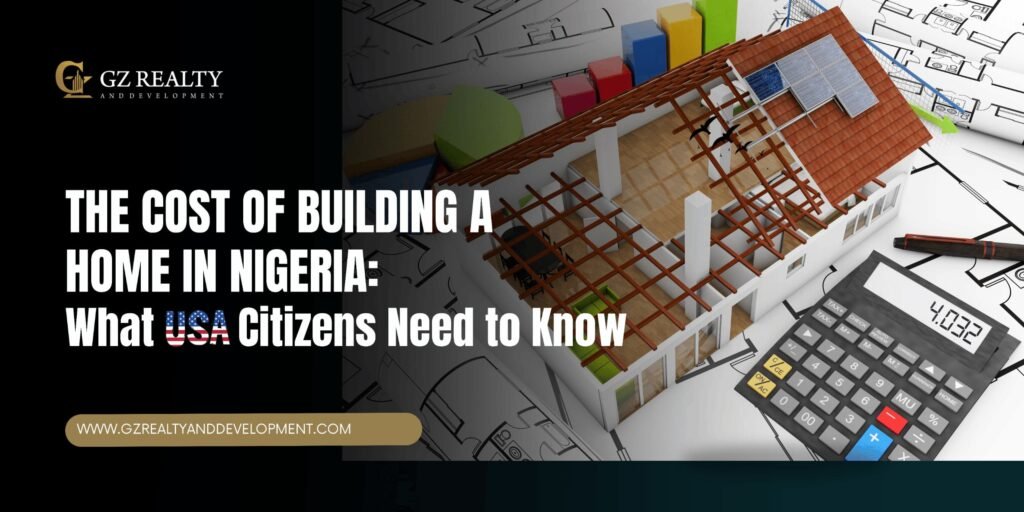You’ll agree that houses are an important need in our society. However, it does not mean that everyone can afford to build one.
It takes a lot of resources and time to build one.
Building a house in Nigeria is not an easy feat either. This is mostly because of the spike in prices of building materials.
In this blog post, we will discuss the cost of building a house in Nigeria and everything you should know.
Understanding the Basics
Before diving into the costs, it’s important to understand the basics of building a home in Nigeria. The process is different from what you might be used to in the US.
In Nigeria, the cost of land, labour, materials, and even legal fees can vary widely depending on the location and the type of house you want to build.
Being aware of these differences can help you plan your budget more effectively.
- Price of Land
The first major cost to consider is the price of land. Land prices in Nigeria can range from very affordable to extremely expensive, depending on the area.
For example, land in Lagos or Abuja is much more costly than in less developed regions. In Lagos, prime locations like Victoria Island or Lekki can command premium prices, sometimes comparable to those in major US cities.
If you’re planning to build in a major city, be prepared to spend a significant amount on land alone.
In contrast, if you choose a more rural area or a developing region, you might find land at a fraction of the cost. However, these areas may lack the infrastructure and amenities of urban centres.
2. Building Materials
The cost of building materials in Nigeria has risen sharply in recent years. Cement, blocks, steel, and other essential materials have all seen price increases, largely due to inflation and supply chain issues.
The volatility of the Nigerian Naira against the US Dollar also plays a role in driving up costs, as many materials are imported. This means that the overall cost of construction has gone up, making it more expensive to build a home now compared to a few years ago.
3. Labour Costs
Labour is another significant expense. Skilled labour, such as architects, engineers, and construction workers, can be costly, especially if you want high-quality work.
However, labour costs are generally lower in Nigeria than in the US, which can help offset some of the other expenses.
Despite the lower wages, finding reliable and skilled workers is crucial to ensure that your project is completed to a high standard.
Inflation’s Impact
Inflation is a major factor that can significantly affect the cost of building a home in Nigeria. The country has experienced periods of high inflation, which impacts almost every aspect of construction.
From the cost of raw materials to labour and even land prices, inflation can make your project more expensive than initially planned.
It’s important to factor in potential cost increases due to inflation when setting your budget. What might seem affordable at the start could become much more costly as inflation drives up the prices of the project.
Permits and Legal Fees
You’ll also need to account for the cost of permits and legal fees. Building a house in Nigeria requires various approvals from local authorities, and these can come with fees.
IAlways work with a local lawyer who understands the process to ensure everything is done correctly.
Skipping this step can lead to legal issues or delays, both of which can add to your overall costs.
Unexpected Expenses
“He who fails to plan, plans to fail” – we’ve heard of that proverb. When building a home, it’s wise to budget for unexpected expenses.
Things like construction delays, price increases in materials, or unforeseen issues with the land can all add to the cost.
Having a financial cushion can help you handle these surprises without disrupting your project. It’s better to prepare for these potential hiccups so you’re not caught off guard.
Final Thoughts
Building a home in Nigeria can be a rewarding investment, but you need to be aware of the costs involved. Consider factors like land, materials, labor, inflation, and legal fees as you plan your project.
a well-informed decision that aligns with your investment goals in 2024.
Ready to take the next step in your investment journey? At GZ Realty, we specialize in connecting US citizens and African Americans with prime real estate opportunities in Nigeria. Whether you’re looking to invest in residential properties, commercial spaces, or land, we’ve got the expertise and local knowledge to help you make the most of the booming Nigerian market. Explore the potential of Nigerian real estate with GZ Realty, and discover how we can help you diversify your portfolio with confidence.
Learn more about our services and start your investment today!

